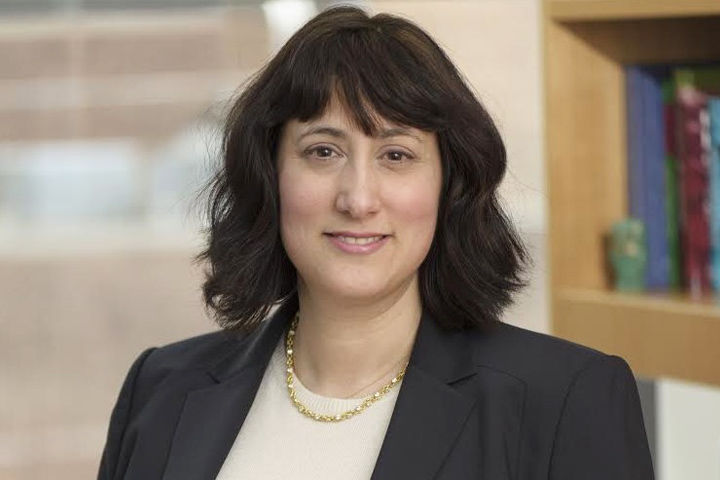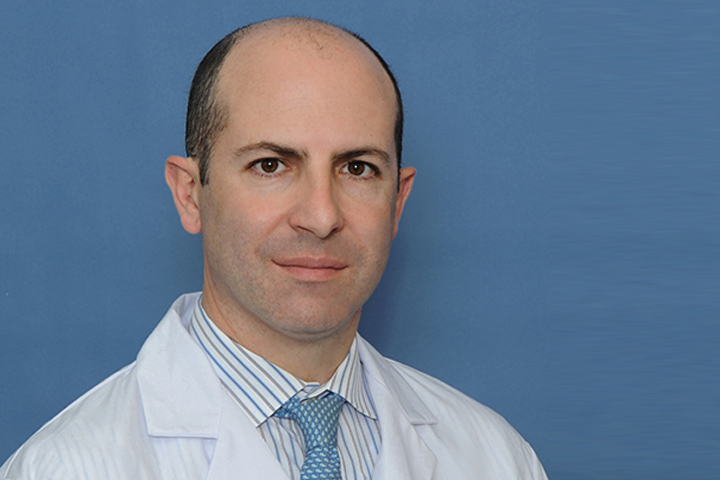Pancreatic Cancer Tissue Helps Unlock the Disease’s Secrets

In an age of TV dramas focusing on criminal investigations, it seems there’s always one character that is vital to solving the mystery. That character is the pathologist.
Pathology is a branch of medical science that focuses on the nature of disease. Pathologists want to discover the cause and the origin of a problem, and to do that they study tissues, organs, and body fluids not only to diagnose a medical condition but also to find its secrets. Perhaps no disease holds more secrets than that of pancreatic cancer, and pathology is indeed revealing some of those mysteries.
“I couldn’t imagine being any other type of doctor or scientist,” says gastrointestinal pathologist Christine Iacobuzio-Donahue, M.D., Ph.D., director of the Medical Donation Program and associate director of cancer genomics in the David M. Rubenstein Center for Pancreatic Cancer Research at Memorial Sloan Kettering Cancer Center (MSKCC) in New York.
“We can find answers to a lot of the unknowns about pancreatic cancer,” she notes. “And hopefully, from those answers, others will be able to design ways of detecting this terrible disease much earlier and changing its outcome.”
Uncovering Secrets with Evolutionary Biology
For years, the general consensus about pancreatic cancer was that either pancreatic cancer is aggressive, spreading quickly to distant organs or that patients experience symptoms so late in the disease process they have little chance of surviving.
But Iacobuzio-Donahue and colleagues discovered something that made researchers rethink their views. It seems that pancreatic cancers grow slowly, and can take about two decades to become a lethal disease that eludes treatment.
“What we’ve shown is that the majority of pancreatic tumors really don’t start out as more aggressive than other types of cancers,” she says. “That means there really could be a way to detect these tumors early.”
In some ways, Iacobuzio-Donahue is looking at the evolution of pancreatic cancer in the same way as an evolutionary biologist who studies changes that occur over time.
One technique borrowed from evolutionary biology is the so-called “molecular clock.” This clock isn’t like that clock on your cell phone. Rather, it’s a way to determine the number of mutations that accumulate in the gene sequences of various species, like plants, animals, even humans, over a period of time. The information is useful to find out how various species evolve, and to find out when two species diverged, or separated, like primates evolving into humans.
Using that same hypothesis, Iacobuzio-Donahue and colleagues estimated how long it took for all of the genetic mutations seen in each pancreatic cancer metastatic tumor to appear. The findings were stunning.
It took nearly 12 years, on average, between the very first mutations and the development of actual cancer cells. And, it took nearly seven more years for at least one of those cancer cells to have the potential to metastasize.
The researchers also found that the primary pancreatic tumor is made up of genetically distinct sub-tumors. “That means the primary tumor continued to accumulate gene mutations after it first appeared,” explains Iacobuzio-Donahue. “So the primary tumor isn’t really a single tumor, rather it’s formed by several genetically distinct tumors.” And more than one of these sub-tumors in the primary tumor was responsible for metastasis.
Brave Patients Make the Difference
In her lab at Memorial Sloan Kettering, Iacobuzio-Donahue is continuing her work in finding changes in the genome of pancreatic cancer that are responsible for the development, growth, and spread of the disease.
To do that, she and colleagues need samples of pancreatic cancer tissue. It is a difficult task. Unlike breast cancer, which is often treated surgically, many patients with pancreatic cancer are diagnosed when surgery is no longer an option. That means there is rarely tissue available for researchers to study.
To that end, she pioneered a program called rapid medical donation in which pancreatic cancer patients with end-stage disease can consent to having an autopsy within hours of their death. Researchers can then study living tumor cells from the primary tumor as well as other sites with metastatic disease.
“This is never an easy conversation to have with people and their families, but I am continually in awe and humbled by the conviction, bravery, and commitment that these people have in wanting to help future patients beat this disease,” says Iacobuzio-Donahue, who directs the Rapid Medical Donation Program at MSKCC.
Rapid medical donation will also allow researchers to better understand pancreatic cancer’s natural history. “We want to know how and why different cancer cell populations adapt to treatment, why some are better at metastasizing and how the cancer ultimately is lethal,” she continues. “We could not do it without these patients.”
It is that knowledge that may lead to better outcomes. “The work can be interesting from a purely scientific perspective, but the ultimate goal for all of us is to help those very brave people and their families who fight this disease every day.”






